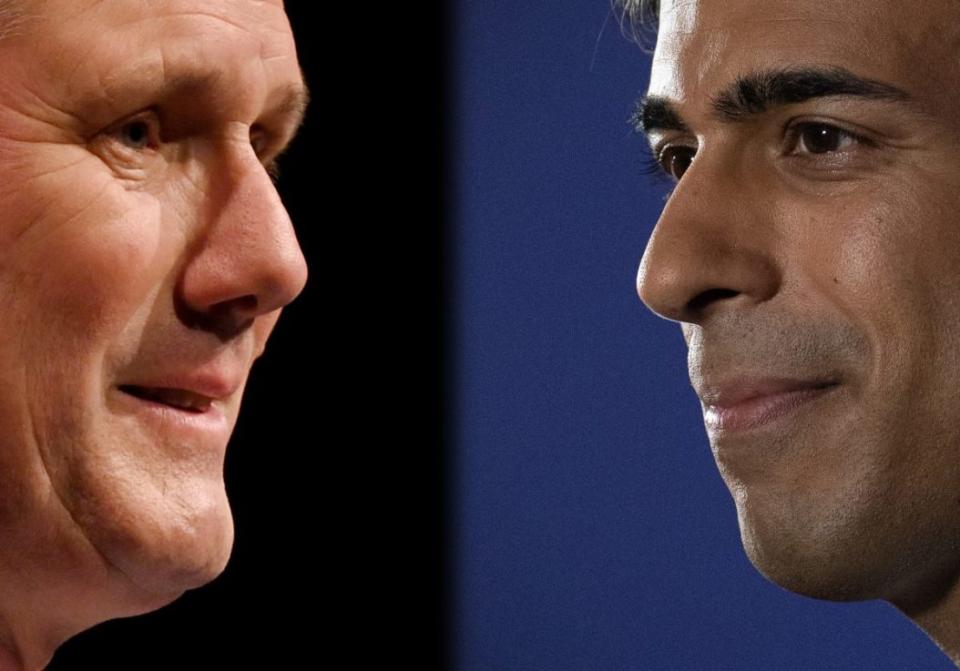What the next government needs to do to kickstart the economy

There’s a startling degree of consensus on the economic challenges facing the next government, but that does not make them any easier to solve.
The biggest problem facing the next government is the UK’s terrible performance on productivity, which has barely improved since the financial crisis. Workers in the US, France and Germany are all around one-sixth more productive than the UK.
Productivity measures output per hour, so improvements in productivity reflect a workforce which is able to produce more in less time. Without improvements in productivity, the only way to generate economic growth is to increase the number of inputs, ie get more people working.
That’s essentially what has happened since 2010, with growth being generated largely due to an increasing workforce. This is one of the reasons why the recent rise in economic inactivity is so damaging for the economy; it reverses one of the few economic success stories of the past decade.
In the long run, productivity is also the main determinant of wage growth as it allows firms to pay workers more without sparking inflation.
Poor productivity growth explains the exceptionally poor performance on real wages since 2010. Real average wages are only £16 a week higher than they were at the time of the 2010 election, compared to growth of £145 between 1996 and 2010.
So what’s behind the poor performance on productivity? Most economists point to poor levels of investment, particularly compared to international peers. Investment helps ensure that workers are properly trained and equipped with the most up-to-date tools, so its easy to see why low investment could dent productivity.
A recent report from IPPR showed that of all G7 nations, the UK had the lowest level of private sector investment in 2022. This is the third successive year in which the UK has ranked bottom among the world’s richest economies in terms of investment.
Out of 31 OECD countries, the UK ranked 28th, beating only Greece, Luxembourg and Poland.
Economists have put forward a number of reasons why investment in the UK has been so low in recent years.
First, there’s the impact of Brexit and the political instability that followed. Investment stagnated immediately after the Brexit vote as the government lurched from one economic strategy to another, leaving businesses with little sense of certainty.
Factional infighting has consumed the Conservatives ever since the Brexit vote. Looking back over the past decade reveals a striking lack of consistency in some core areas of government policy, such as the level of corporation tax, HS2, industrial strategy and the ban on diesel cars.
Secondly, many economists point to low levels of public investment, which could help to crowd in private sector investment. This is particularly true in the most risky area of the green transition, where firms want the government to reduce the potential risks of investment in new technologies.
Some level of public investment is also surely needed to address the UK’s poor infrastructure, whether it be roads, pipes or pylons.
Thirdly, there’s the whole gamut of restrictions that businesses face when actually making investment decisions, from an onerous planning regime to a growing regulatory rule-book.
No doubt there are a range of other factors which are constraining business investment, but any government serious about boosting productivity will have to make some progress on these crucial areas.
There’s no point asking which party has the best platform to boost investment. Labour is going to win, so the only relevant question is whether their manifesto can make a genuine difference.
There are some hopeful signs, with the party pledging to use “every available lever” to encourage investment.
Most importantly, the Labour manifesto argued that the planning regime “acts as a major brake on economic growth.” Reform is likely to be at the heart of Labour’s initial push for growth, but the big question is whether Labour will be able to make genuinely meaningful reforms in this politically painful area.
Policy stability is also a key part of Labour’s pitch, which is welcome but is more a reflection of the last government’s awful track record. Indeed, there’s reason to think that stability has essentially already been priced in by firms, with business confidence already at its highest level for years.
On public investment the ambition is also fairly modest. Through its ‘Green Prosperity Plan’, Labour has promised to invest £4.7bn more per year than the current government, although this is not enough to prevent public sector investment falling as a share of national income.
Given the tight fiscal position, this is understandable. Nevertheless, the costs of inaction will continue to rise.
So while there are positive signs, it is difficult to shake the feeling that Labour does not yet have a policy platform that will change the underlying economic picture. This could change in government, but there’s no guarantee.

 Yahoo Finance
Yahoo Finance 